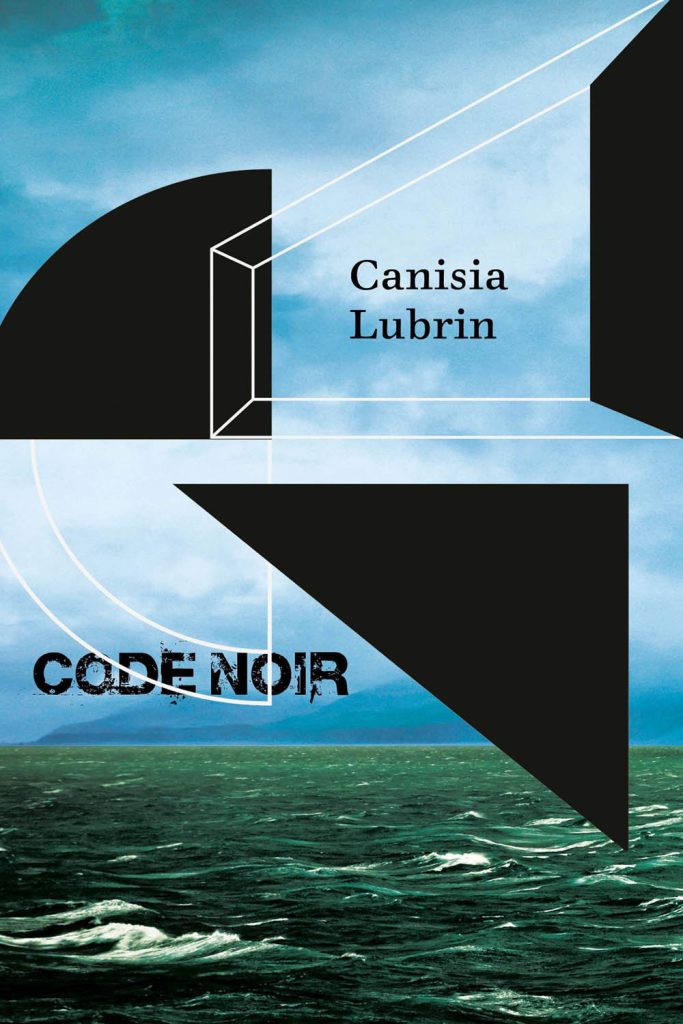This month’s reading picks from the Caribbean, with reviews by Shivanee Ramlochan of Code Noir by Canisia Lubrin; Time Cleaves Itself by Jeda Pearl; Mother Archive: a Dominican Family Memoir by Erika Morillo; and Looking for Cazabon by Lawrence Scott
Code Noir
by Canisia Lubrin (Knopf Canada, 360 pp, ISBN 9780735282216)
In St Lucian Canisia Lubrin’s Code Noir reside 59 of the most devastating, clarifying fictions you will read this year — or any other. As linked stories, they respond to, trouble, and subvert the original 59 racist declarations of Louis XIV’s Code Noir, created to dictate slavery’s functionality in all French colonies. In mesmeric styling, Lubrin reproduces the dead king’s codes, but slantwise: they appear between her fictions as greyscale interventions shaped by the artist Torkwase Dyson. What Code Noir presents, and represents, calls a limitless Blackness onto the page and simultaneously beyond it. We are summoned to imagine all states, all territories, all alertness that can be given up to Black imagination. We are, as readers of this visionary text, called upon to believe not only that all this might be real, but that it has always been occurring.
Time Cleaves Itself
by Jeda Pearl (Peepal Tree Press, 80 pp, ISBN 9781845235888)
“Squash my ‘otherness’ back into your grandma’s old regency tin”, declares a poem in Scottish-Jamaican Jeda Pearl’s debut collection, Time Cleaves Itself. Of such fiery, impassioned salvos is this work composed, in verse that declaims its speaker’s right to be inscribed in Scotland’s soil despite insidious and extant hostilities. Alongside the rage of these poems abides a deliberateness of attention, delving into wells of childbirth, motherhood, disability, disenfranchisement, illness, pulling rich meanings to the surface. Summoning the tongues of Scots and Jamaican Patois, Pearl constructs language as a border-shifting, discrimination-crumbling powerhouse — one in which its poems’ speakers may roam thistledown-covered crags and wine on dancefloors with a matched, indomitable spirit. This is poetry that utterly convinces, singing its proud decolonial, intersectional song from island inlet to hospital bed, from the galactical gaze of the universe itself.
Mother Archive: a Dominican Family Memoir
by Erika Morillo (University of Iowa Press, 250 pp, ISBN 9781609389949)
Urgency ripples from the prose of this memoir, which reveals the apertures created when a core memory — a familial wound — is silenced, in action and in thought. After her father is disappeared under the brutal regime of the Dominican Republic’s Joaquín Balaguer, Morillo witnesses her mother erase her father’s photographs from their home. In this way, Mother Archive tends to the wounds at multiple sites, asking where trauma resides when it is denied its natural tributaries: what new pains spring from such eradication? Morillo writes of her life and her mother’s — not unflinchingly, but with a disarming awareness of her wounds, juxtaposing photographs from her family’s life alongside the searing, revelatory text. In a radical epistolary mode, the writing both addresses and eclipses the memoirist’s mother: a visionary decision in an already-impactful work.
Looking for Cazabon
by Lawrence Scott (Papillote Press, 80 pp, ISBN 978173930367)
How may we know a place, sonnet by sonnet? Lawrence Scott’s Looking for Cazabon provides us with a sensory, devotional answer. These poems, written in creative pursuit of the influential 19th century Trinidadian artist Michel-Jean Cazabon, are as suffused with light, depth, and textural interplay as the painter’s landscapes themselves. Scott’s award-winning fictions have long been characterised by their sensitivity, the dual piquancy and gravitas they employ to scrutinise our historic and contemporaneous living. These qualities shine too in the author’s first collection of verse. Trinidad, as much as Cazabon, is the beloved, bedevilled subject of these sonnets (and one long-form free verse poem), which move across the near entirety of the island with an aching, reflective familiarity. No place could feel more alive, more blessed and fractured and incandescently active, than in the poems Scott creates.

